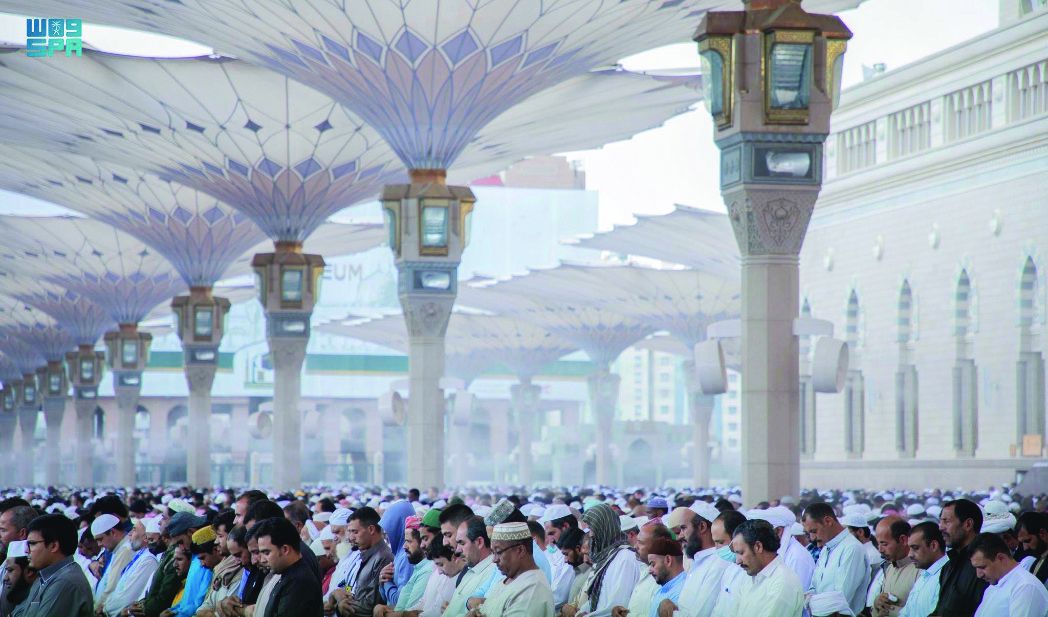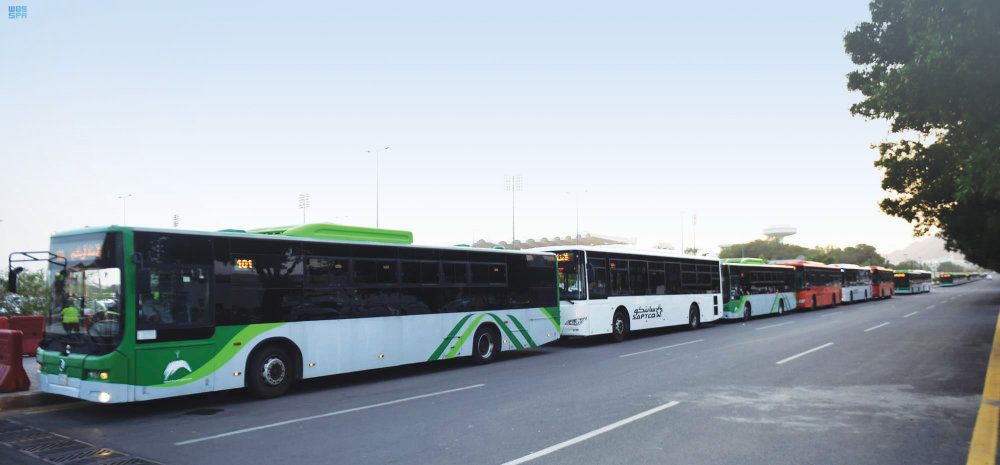Umrah and Eid Al-Fitr revive GCC region’s hospitality industry
Other than increase in worship, giving charity and helping others in need, one practice that tends to increase manifold during the month of Ramadan is the performance of Umrah, a pilgrimage to Makkah that can be undertaken at any time of the year.
During the first 10 days of Ramadan alone over 9 million pilgrims were reported to have performed Umrah, according to Gulf News. This was reflected in Saudi Arabia’s hotel sector which witnessed a significant resurgence.
Surge in hotel occupancy and rates
Room occupancy in Makkah’s central areas hit 100 percent during the last 10 days of the holy month, the highest level since the pandemic, according to Bassam Khanfar, manager of one of the hotels in the Aziziyah neighborhood. Umrah pilgrims increase significantly during the last 10 days of the month as they are considered the holiest and most blessed days of the month.
This resulted not only in high room occupancies in Makkah but also in record room rates which climbed to new highs due to the huge surge in demand, according to the chairman of the Hajj and Umrah Committee of the Makkah Chamber, Abdullah Al-Qadi.
Al-Qadi noted that hotel rates, particularly in Makkah, are determined by certain factors including supply and demand, proximity to the Grand Mosque, room views and amenities.
Well-being of Umrah pilgrims
There is no doubt that Saudi Arabia’s Ministry of Tourism has a significant role to play when it comes to the well-being of Umrah pilgrims during Ramadan.
In fact, this year, the ministry worked on raising pilgrim capacity in Makkah and Madinah ahead of the holy month to meet the growing demand for accommodation during the season.

Back in February, the Kingdom’s Tourism Minister Ahmed Al-Khateeb, on his Twitter page, said that the ministry was planning to operate an additional 9,000 hotel rooms in Madinah before Ramadan.
By March, Abdulrahman bin Abdulaziz Al-Sudais, one of the nine imams of the Grand Mosque, announced that all services provided at the Two Holy Mosques namely the Grand Mosque and the Prophet’s Mosque were fully ready.
The operational status of all escalators, elevators, the sound system and all technical service, engineering, awareness and guidance services were ready to accept visitors from all over the world, Al-Sudais stressed.
In addition to this, there was a specialized team that supervised the provided services to ensure that they were implemented in accordance with certain established standards using top-notch technologies.
Rise in demand from GCC countries
Other Gulf Cooperation Council countries like Qatar and the UAE also witnessed a significant jump in demand for Umrah pilgrims this year especially in the period prior to and during the holy month.
For instance, owners and managers of Umrah and Hajj campaigns in Qatar disclosed that the number of pilgrims during Ramadan surged 100 percent mainly due to the fact that land travel has resumed further boosting demand, according to Gulf Times newspaper.
Similarly, the UAE experienced an increase in Umrah pilgrimage both prior and during the holy month to the extent that Umrah operators in the country confirmed that over 5,000 people traveled from the UAE to Makkah by bus on a weekly basis, according to Jaffer Pulappatta, who facilitates Umrah pilgrimage for large groups.
In general, since the end of the COVID-19 pandemic, the Saudi government has taken major steps to enhance the Hajj and Umrah experience.

One of the steps undertaken by the government in an attempt to enhance and further elevate the Umrah experience is to apply digital transformation and artificial intelligence to play an active role in the mobility of worshipers and visitors to holy sites.
The newly introduced AI technologies around the mosques have been helping to control crowds, ensuring that the right number of people is present anywhere around the sites at any given time. AI will be a game-changer for the ease and convenience of crowd mobility, which will reduce risks of unfortunate accidents or stampedes.
Impact of Eid Al-Fitr holidays
After Ramadan season comes Eid Al-Fitr holidays, which is also seen to have quite a significant impact on hotel occupancy in key markets in the GCC region.
According to an STR report, which is a benchmarking tool that compares a hotel’s performance in relation to a group of similar hotels, Abu Dhabi and Dubai have showed a spike in occupancy bookings on Saturday, April 22, at 59.7 percent and 60.3 percent respectively.
“While typically slower during Ramadan, leisure travel within the Middle East is set to resume during Eid,” said STR’s account executive, Middle East and Africa, Kostas Nikolaidis.
“Many countries offer paid holidays for three to five days post-Ramadan, which is where we typically see spikes in occupancy,” he added.
In Qatar, for instance, the occupancy on the books is at its peak on Sunday, April 23, at 42.3 percent.
This comes as “this year Qatar announced an 11-day holiday, further extending the length of travel time available to celebrate the end of the holy month,” Nikolaidis explained.
“Qatar naturally operates at a lower occupancy when compared to Abu Dhabi and Dubai. The extended Eid holiday period in the market this year may lead to lower occupancy peaks as demand could spread across more days,” he continued.
Overall, Umrah and Eid Al-Fitr holidays are playing a key role in reviving the hospitality industry, signaling a return to the strong and sturdy performance recorded across the GCC region.













